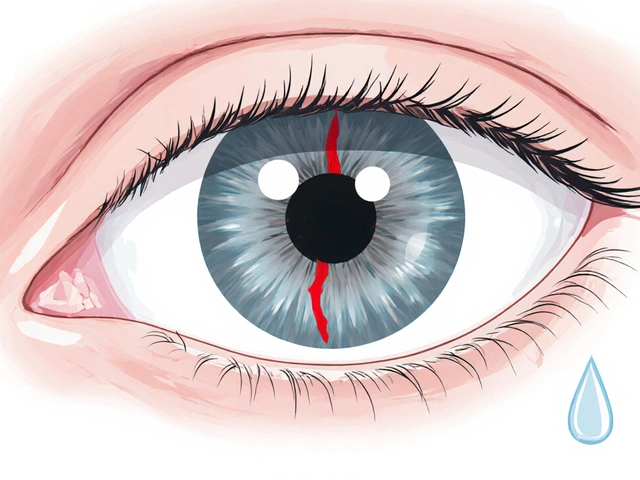Sleep Hygiene and Antidepressants: Simple Ways to Sleep Better
Feeling groggy after starting an antidepressant? You’re not alone. Many meds can change how fast you fall asleep, how long you stay asleep, or even make you feel restless at night. The good news? A few sleep‑hygiene habits can smooth out those bumps and help you get the rest you need.
Why Antidepressants Mess with Your Sleep
Different classes of antidepressants work in slightly different ways. SSRIs (like Prozac or Zoloft) can boost serotonin, which sometimes leads to early‑morning awakenings. SNRIs (like Effexor) may increase norepinephrine, making you feel more alert. Tricyclics can cause dry mouth or vivid dreams. Knowing which side effects match your prescription gives you a starting point for fixing your sleep.
Practical Sleep‑Hygiene Tips While on Meds
1. Keep a consistent schedule. Go to bed and wake up at the same time every day, even on weekends. Your body’s clock likes predictability, and a steady routine can counteract medication‑induced disruptions.
2. Tweak your evening lighting. Bright lights suppress melatonin, the hormone that tells you it’s time to sleep. Dim the lights an hour before bedtime, and try a blue‑light filter on phones or tablets.
3. Time your dose wisely. Some doctors recommend taking the antidepressant in the morning if it makes you jittery, or at night if it causes drowsiness. Always ask your prescriber before changing timing.
4. Watch caffeine and alcohol. Caffeine can linger for up to six hours, and alcohol may help you fall asleep but then fragments your sleep later. Cut back after 2 p.m. if you notice restless nights.
5. Create a calming pre‑sleep routine. A warm shower, gentle stretches, or a short meditation can signal to your brain that it’s wind‑down time. Keep the routine under 30 minutes so you don’t drift into wakefulness.
6. Keep the bedroom cool and quiet. Aim for 60‑67 °F (16‑19 °C) and use earplugs or a white‑noise app if street noise is a problem. A cool room supports natural drops in body temperature, which helps you slip into sleep faster.
7. Limit screen time. The glow from phones and laptops tricks your brain into thinking it’s daytime. Put devices on a nightstand or in another room at least 30 minutes before bed.
8. Track your sleep. A simple notebook or a free phone app can help you see patterns. Note when you take your meds, any side effects, and how long you actually slept. This data is gold when you discuss adjustments with your doctor.
Remember, it’s normal for sleep to wobble during the first few weeks of a new antidepressant. If insomnia persists beyond two weeks, or if you’re having vivid nightmares, reach out to your prescriber. They might tweak the dose, switch you to a different medication, or add a short‑term sleep aid.
Combining these sleep‑hygiene habits with regular exercise (preferably in the morning) and a balanced diet can boost both mood and rest. You don’t need a perfect night every night, but steady improvements add up to better overall health.
Bottom line: Antidepressants can shake up your sleep, but they don’t have to win. By mastering a few straightforward habits, you can keep your mind steady and your nights peaceful.



